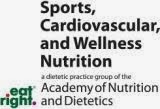Cycling's issues with doping and recent target of Lance Armstrong, a lot of us, whether we are weekend warriors, casual 5k runners, or gym rats want to get the most out of either our workout or event. So outside of our clientele (or some of us) dropping hard earned money on "pre-workout" drinks/chews; "refueling" beverages during workouts, and "post-workout" noshes, what is cheap easy and has been studied intensely. PubMed has over 300 studies.
The easiest choice of the matter is caffeine. A cup of joe before a workout increases workout performance in endurance sports like cycling and running. It's used by rowers and triathletes alike. Upwards of 2/3 of Olympic athletes have caffeine in their urine. No wonder those gymnasts bounce around.
Research indicates that caffeine increases the number of fatty acids in the bloodstream. This spares glycogen and increases fat metabolism and well, if you're running a marathon, the last few miles can be taxing, the body typically 'hits the wall' after all the liver's stored carbohydrate (glycogen) is used up. Theoretically, by consuming caffeine the runner's sources of fuel would cycle between fat and glycogen, with fat as the primary fuel stores.
What about gym rats hitting the weights? Coventry University in England published a study using weight lifters who consumed sugar free caffeine beverage or one without. After the workouts...the caffeinated guys lasted longer than those sans caffeine. Also, in the British Journal of Sports Medicine, soccer players who consumed caffeine were more accurate in dribbling, passing, and heading the ball.
The applications for practice? While some studies were done with athletes who have consumed the equivalent of 5 cups of coffee prior to a workout, no current research indicates how much caffeine is beneficial. One bit of information to note is that caffeine affects each person differently, while the college student during finals may have no affects on 8 cups of coffee, one cup may keep another person up half the night.
One grain of salt from these studies is that there isn't enough research done on people who drink soda pop, coffee, and tea all day long. Those who are not accustomed to caffeine may have greater benefits.
Gina is a SCAN dietitian who can be found blogging over at Dietitians Eat Chocolate Too.
Saturday, August 25, 2012
Sunday, August 19, 2012
Alcohol & The Athlete: Blood Pressure Considerations
Back to school means back to campus. While most fall athletes have already been working out getting ready for the fall season, Nancy Clark reports in a recent article in Active "College athletes are more likely to drink than non-athletes." Among the obvious issues with alcohol consumption: impaired performance, hangovers/electrolyte imbalance, decrease in academic performance, some athletes are pre-hypertensive due to weight, lifestyle, or genetic factors.
The Mayo Clinic reports that 2-3 drinks will temporarily rise blood pressure but binge drinking commonly associated with the collegiate population can lead to long-term increases.
Moderate drinking is generally considered to be:
The Mayo Clinic reports that 2-3 drinks will temporarily rise blood pressure but binge drinking commonly associated with the collegiate population can lead to long-term increases.
Moderate drinking is generally considered to be:
- Two drinks a day for men younger than age 65
- One drink a day for men age 65 and older
- One drink a day for women of any age
A drink is 12 ounces (355 milliliters) of beer, 5 ounces (148 milliliters) of wine or 1.5 ounces (44 milliliters) of 80-proof distilled spirits.
Sources:
Alcohol: Does it Affect Blood Pressure?
Alcohol, Athletes, and Pressure to Drink by Nancy Clark MS, RD, CSSD for Active.com
Monday, August 6, 2012
We Need Volunteers: SCAN RDs With Something To Say
Do you have a 'cool job', loads of experience, or something to say?
Have you been reading this blog periodically and might have caught the blogging bug? E-mail me at glesako@gmail.com with your submissions and a brief blurb about yourself any any social media you would like included.
Have you been reading this blog periodically and might have caught the blogging bug? E-mail me at glesako@gmail.com with your submissions and a brief blurb about yourself any any social media you would like included.
Friday, August 3, 2012
The Produce Sticker Post
Many of us fondly (or not so fondly) recall learning to read labels on just about anything. But have you gone grocery shopping recently only to wonder what the stickers on your apples meant?
Genetically Modified
Trying to avoid GMOs? If the sticker has 5 numbers and starts with an 8? It was genetically modified.
Grown Conventionally
Regular produce will have a sticker with 4 numbers on it.
Organic
These will have 5 numbers like the genetically modified but will start with a 9.
Subscribe to:
Posts (Atom)
